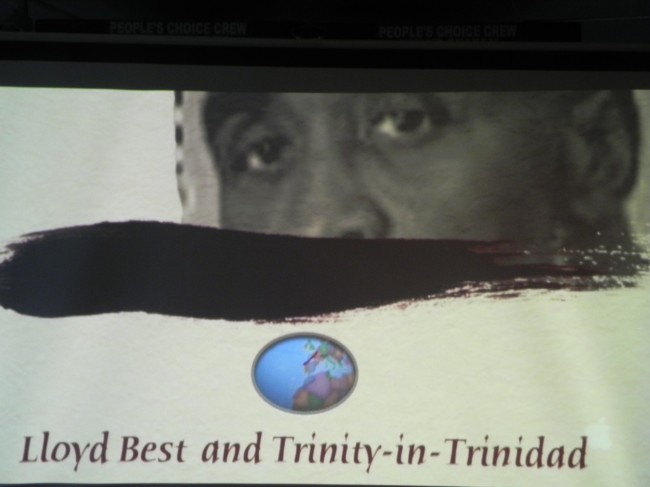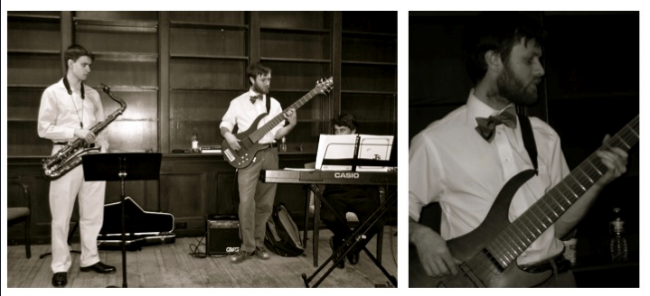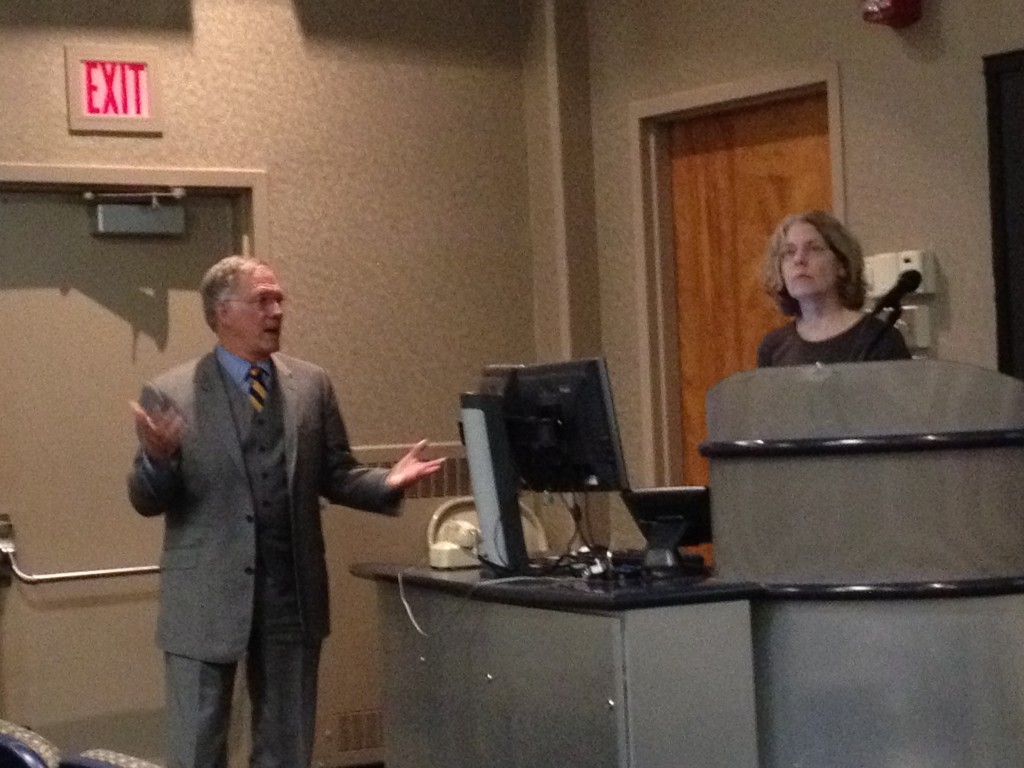Home » Events (Page 5)
Category Archives: Events
Lecture: “The Tragedy of Leon Trotsky”
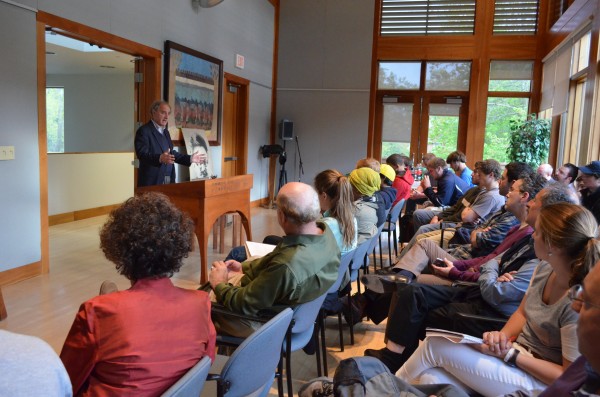 By Jacob Prosnit (Class of 2012)
By Jacob Prosnit (Class of 2012)
On Wednesday, April 25th, the Jewish Studies Department and the History Department sponsored a lecture by Joshua Rubenstein entitled, “The Tragedy of Leon Trotsky{. Rubenstein works for Amnesty International and is a long-time associate of the Davis Center for Russian and Eurasian Studies at Harvard University. His latest book, Leon Trotsky: A Revolutionary’s Life was published at Yale University Press in October 2011 and was the basis for the talk. Among many things, Rubenstein discussed Trotsky’s personal life, his rise to power with Lenin, his momentous struggle for power against Stalin and his famous death in Mexico. The afternoon lecture took place at the Hillel House on Vernon Street and was well attended by students and faculty alike.
(more…)
Trinity Film Festival 2012
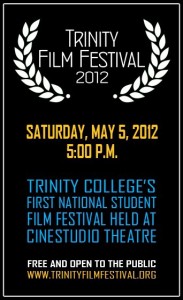 “The festival will be held on May 5th at the nationally acclaimed Cinestudio Theater (cinestudio.org) on the campus of Trinity College. For over 40 years, Cinestudio has promoted the art of film at Trinity and in the greater Hartford area. Adopting this same spirit, the Trinity Film Festival seeks to bring together student filmmakers from the northeast and all over the country to receive the opportunity to meet fellow filmmakers and to premier their works on the big screen in front of a packed audience. Whether enrolled at a university with a large film program or one with no film program at all, we encourage undergraduate students to make short films and enter for the chance to see their films premiered in Cinestudio. An eclectic panel of filmmakers, professors, celebrities, and film enthusiasts will judge the films and award cash prizes to the winners. Ultimately, the audience will have the opportunity to vote on the grand prize winner. After the festival screenings, a red carpet awards banquet will be held for all to attend. Food and festivities will commence as the judges deliberate on the awards, culminating in the awards ceremony and a Q&A with the judges.” For more information go HERE.
“The festival will be held on May 5th at the nationally acclaimed Cinestudio Theater (cinestudio.org) on the campus of Trinity College. For over 40 years, Cinestudio has promoted the art of film at Trinity and in the greater Hartford area. Adopting this same spirit, the Trinity Film Festival seeks to bring together student filmmakers from the northeast and all over the country to receive the opportunity to meet fellow filmmakers and to premier their works on the big screen in front of a packed audience. Whether enrolled at a university with a large film program or one with no film program at all, we encourage undergraduate students to make short films and enter for the chance to see their films premiered in Cinestudio. An eclectic panel of filmmakers, professors, celebrities, and film enthusiasts will judge the films and award cash prizes to the winners. Ultimately, the audience will have the opportunity to vote on the grand prize winner. After the festival screenings, a red carpet awards banquet will be held for all to attend. Food and festivities will commence as the judges deliberate on the awards, culminating in the awards ceremony and a Q&A with the judges.” For more information go HERE.
Interview with Tom Weiner ’71 on Vietnam draft experience
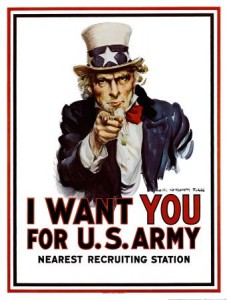
By: Jake Prosnit (History, Class of 2012)
On Thursday, April 19th, Trinity was treated to a Common Hour lecture, “Called to Serve: Stories of Men and Women Confronted by the Vietnam War Draft,” from Tom Weiner. Author of Called to Serve: Stories of Men and Women Confronted by the Vietnam War (An interview with Tom from Junior Lydia Kay is below), Tom Weiner graduated Trinity in 1971 and his time at Trinity, specifically December 1st, 1969, the night of the draft lottery, is the backdrop of his book. His work tells the story of 30 men and women (even though he interviewed 61) and their memories of being called to serve in Vietnam. Tom Weiner was successful in making the Common Hour less of a lecture and more of a discussion with his audience. He invited Peter Jessop class of 1976 to share some thoughts on Vietnam and Tom’s book. A conscientious objector of the Vietnam War, Peter spoke about the night of the draft lottery (he was #85) and eagerly awaiting the announcement in North Campus (my current dorm). His whole interview is documented in the book. Another Trinity notable, Dr. George Higgins, a 40-year employee of the College, also shared thoughts about being at Trinity during Vietnam and his special role in counseling and diagnosing students.
(more…)
History Professors Attend Historic Conference in Trinidad & Tobago
By: Prof. Markle (History/International Studies)
From March 18th to March 25th, a delegation of Trinity College faculty members traveled to Trinidad and Tobago to attend and participate in the Lloyd Best Institute of the West Indies’ THE COMMON SENSE CONVOIS: RE-AWAKENING THE CARIBBEAN SPIRIT. History professors Dario Euraque and Seth Markle were part of this delegation which also included Milla Riggio (English), Pablo Delano (Studio Arts) and Kifah Hanna (Language and Cultural Studies) as well as undergraduate senior Antonea Ascione (Political Science/English). Since the early 2000s, Trinity College has been partnering and collaborating with the Lloyd Best Institute — named after the renowned Trinidadian economist who died in 2007 — in giving our undergraduate students an incredibly enriching active learning and cultural immersion study away experience.
(more…)
History Dept. Meet-n-Greet
By: Francis Russo (Class of 2012)
About a week ago in a room inside of a room, the History Department held a ‘meet and greet’ for faculty and students. If you’ve never been to the Goodwin Lounge, stop by—its transplanted interior is a hidden gem whose antique eloquence is a great place for anything history. I had only been reminded of the event a few hours before by a fellow history friend, and walking over we had a lurking suspicion we might be the only ones there. However, it turned out to be a filled room and lively event. The Adam Whitehurst Trio jazzed up conversation and light food was served. A good number of professors appeared. There were also a fair number of students, some veterans of history major-dom and some just about to enlist. Topics of discussion ranged all over the board. The meeting was a nice reminder that the history department faculty and students could congeal into a recognizable body. Perhaps the labyrinthine guts of Seabury limit a community space for impromptu conversation, but the ‘meet and greet’ was a nice opportunity for some history department solidarity. Stay tuned for more events.
Leading Egyptologist Reveals Findings
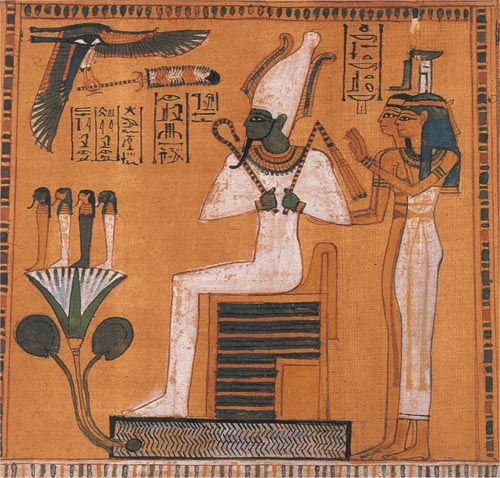 By: Alyssa Rosenthal (Class of 2013)
By: Alyssa Rosenthal (Class of 2013)
From The Trinity Tripod, 21 February 2012
“Trinity welcomed one of the world’s foremost Egyptologists to campus on Wednesday, Feb. 15 to speak about her recent discoveries at Abydos, one of the most ancient cities in Upper Egypt. Associate Professor of Classics Martha Risser introduced Dr. Janet Richards, who was “deliriously happy to be back in New England.” The program was organized by Trinity’s Classics Department and the Hartford Society of the Archeological Institute of America. Richards is currently an Associate Professor of Egyptology in the Near Eastern Studies Department and Associate Curator for Dynastic Egypt at the Kelsey Museum at the University of Michigan. She has been the Field Director at the Abydos Middle Cemetery Project in Egypt since 1995, where her most notable achievement was the discovery of the lost tomb of Weni the Elder, one of the king’s officials, and his lengthy biography. Richards has published books about architecture, art, and society in ancient Egypt. Her most recent publication is titled Order, Legitimacy, and Wealth in Ancient States. Before diving into her presentation, titled “People, Politics, and Piety in Ancient Egypt,” Richards told her listeners she wanted to “bring [them] into the process of discovery.” She situated her findings from the sixth dynasty of ancient Egypt, around 2300 B.C., during the reign of King Pepi I. The great pyramids were built at Giza about a century earlier, during the fourth dynasty.”
Read full article HERE.
Lecture: ‘How the Irish Became Black’ with Prof. Bruce Nelson

By Michael McLean (History major, Class of 2014)
Today’s history lecture titled “How the Irish Became ‘Black’: Irish Identity in the 19th Century” provided an in-depth look at Irish identity and race relations. After giving a brief historical context on Ireland (the potato famine, mass emigration, British imperialism, etc.). Historian Bruce Nelson of Dartmouth College provided a number of images and anecdotes which displayed how the Irish were indeed labeled as a black, “negroid” race in the US and England, far inferior to other white Europeans. For instance, the Irish frequently appeared in political cartoons depicted as ape-like creatures, and were described as lazy savages with dark skin. The arguments for this kind of thinking are of course ridiculous, if not outright laughable. Nevertheless, Nelson highlighted a vital phenomenon in the history of racial identity. It is now scientifically accepted that there is no biological basis for race, but rather a social construction, and skin color has no affect on personal characteristics (i.e. intellect or diligence). Still, concepts of race still dominate much of our lives in the US and act as a tool to perpetuate inequality. In this way, the lecture was a crucial reminder that race is not as fixed as many of us would like to believe, and what constitutes “blackness” has changed dramatically over the course of history.
Borden W. Painter Jr Lecture: Prof. Kathleen Kete
By: Carolyn Taratko (History, Class of 2012)
On Tuesday, February 7th Professor Kathleen Kete gave the inaugural Borden W. Painter Jr. Lecture in the McCook auditorium. Professor Kete lectured on her current project, a history of the Alps in the French Revolution. Using Horace Benedict de Saussure’s Voyage dans les Alpes (held in our own Watkinson Library) as a guide, she interrogates the relationship between natural and civil history in the eighteenth century. Saussure, a Genevan aristocrat, was also a naturalist and a climber whose 1787 summit of Mont Blanc captured the nation’s attention. His extended forays into the Alps resulted in extensive observations on botany, geology and glaciers, but also nuanced descriptions of the mountains and the people who inhabited them. These two spheres of inquiry, the first scientific and the second picturesque, were published separately in post-Revolutionary France.
(more…)
Lecture: Recovery and Clean-Up Stalls in Wake of Japan’s Earthquake and Tsunami
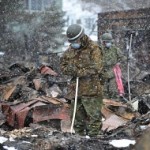 “HARTFORD, CT, November 16, 2011 – The devastation from the magnitude 8.9 earthquake that struck northeastern Japan in March of this year is almost unimaginable, with tens of thousands of people having fled, leaving the poor and the elderly to fend for themselves and gigantic piles of debris everywhere. That was the bleak picture painted by Jeffrey Bayliss, associate professor of history and an expert on Japan and Japanese culture and history, and Amelia Wei ’12, who spent a month in Japan during the summer conducting research concerning the recovery and relief efforts. Bayliss and Wei spoke at a November 15 Common Hour event sponsored by the Center for Urban and Global Studies.
“HARTFORD, CT, November 16, 2011 – The devastation from the magnitude 8.9 earthquake that struck northeastern Japan in March of this year is almost unimaginable, with tens of thousands of people having fled, leaving the poor and the elderly to fend for themselves and gigantic piles of debris everywhere. That was the bleak picture painted by Jeffrey Bayliss, associate professor of history and an expert on Japan and Japanese culture and history, and Amelia Wei ’12, who spent a month in Japan during the summer conducting research concerning the recovery and relief efforts. Bayliss and Wei spoke at a November 15 Common Hour event sponsored by the Center for Urban and Global Studies.
(more…)
Mead Lecture: Yale Professor Visits Trinity, Discusses Genocide
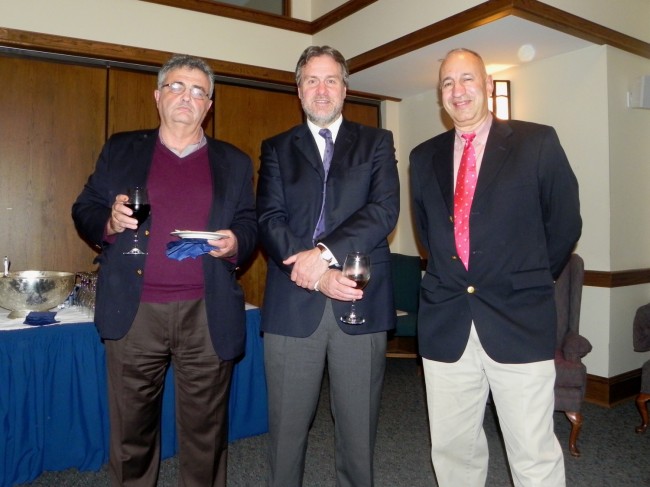
By: Jordan Hillier (Class of 2015)
“On Wednesday, Nov. 9 Whitney Griswold Professor of History at Yale University Ben Kiernan held a lecture at Trinity College about the history of Genocide. He stated that the legal definition of genocide is defined as “deliberate and systematic [acts committed with intent to destroy], in whole or in part, an ethnic, racial, religious, or national group.” He explained to a group of Trinity students what he had learned over the past few years through his extensive study of the term, idea, and reality of genocide. What Kiernan discussed during his lecture was a conclusion he came to, which was that while some incidents reside soundly within the legal definition of “Genocide”, this description cannot encompass all of the episodes that take place. Kiernan walked the audience through the history of genocides and the characteristics of the horrendous acts that take place. No two acts of genocide are alike, however genocidal thinking is generally racist and based on religious ideals.
(more…)
